Роберт Бюттнер - Orphan's Journey
Здесь есть возможность читать онлайн «Роберт Бюттнер - Orphan's Journey» весь текст электронной книги совершенно бесплатно (целиком полную версию без сокращений). В некоторых случаях можно слушать аудио, скачать через торрент в формате fb2 и присутствует краткое содержание. Жанр: Боевая фантастика, на английском языке. Описание произведения, (предисловие) а так же отзывы посетителей доступны на портале библиотеки ЛибКат.
- Название:Orphan's Journey
- Автор:
- Жанр:
- Год:неизвестен
- ISBN:нет данных
- Рейтинг книги:3 / 5. Голосов: 1
-
Избранное:Добавить в избранное
- Отзывы:
-
Ваша оценка:
- 60
- 1
- 2
- 3
- 4
- 5
Orphan's Journey: краткое содержание, описание и аннотация
Предлагаем к чтению аннотацию, описание, краткое содержание или предисловие (зависит от того, что написал сам автор книги «Orphan's Journey»). Если вы не нашли необходимую информацию о книге — напишите в комментариях, мы постараемся отыскать её.
Orphan's Journey — читать онлайн бесплатно полную книгу (весь текст) целиком
Ниже представлен текст книги, разбитый по страницам. Система сохранения места последней прочитанной страницы, позволяет с удобством читать онлайн бесплатно книгу «Orphan's Journey», без необходимости каждый раз заново искать на чём Вы остановились. Поставьте закладку, и сможете в любой момент перейти на страницу, на которой закончили чтение.
Интервал:
Закладка:
Ord nodded, refolded the taupe paper, and tucked it into his breastplate pouch.
He didn’t tell me that we wouldn’t need it.
We wound for a mile through tent clusters spread among the dunes behind the embarkation beaches. We first passed through the late-wave units, the ones that would only make the crossing if we lodged successfully on the opposite shore.
Sweet janga smoke drifted across the Marini charioteers’ laagers. The troops weren’t getting stoned before battle. Their wronks were being sedated, so they could be chained down in boats to make the crossing.
I shuddered at the smell. We had perfected the sedation technique now, but, early on, I had witnessed a test during which an underdoped, trussed-up bull wronk kicked the bottom out of a river packet. The boat sank like an anvil, with all hands. I handwrote letters to the family of each soldier lost, and teared up every time.
As we passed onto the beach, the surf boomed. The fifty Tassini Scouts of the Fifteenth Encampment squatted in a ring around a low fire in the sand. They clapped in unison, keeping time with the surf’s pulse.
Their boat lay on its side in the sand, ten yards away, between the fire and the sea.
The upturned boat shielded the fire’s heat signature from the far shore, but Jeeb’s latest reconnaissance flights seemed — seemed — to confirm that the far beaches were sparsely defended.
Howard still hadn’t gotten his look inside the storage sheds near the Troll, and we hadn’t covered a host of other contingencies that hung ahead of us like swords. But if a commander can give every unit everything every time, he isn’t using everything he has.
Alongside the fire, painted orange in its light, the Fifteenth’s Troop Leader and First Sergeant hopped side-to-side, feet together, in time to the clapping. They jumped across Tassini swords planted naked-blade-up in the sand.
The Tassini believed the Sword Dance and prayer before battle bought safety. Personally, I’d buy safety with a good helmet and a clean rifle.
When Jude saw Ord and me, he stopped mid-hop.
His troopers stopped clapping, looked where he looked, then leapt up and surrounded me. I shook hands, patted shoulders, smiled, and tried not to think about 70 percent of those kids as tomorrow’s casualties.
Most of the Marini Marshals, and not a few officers on Earth, thought buddying with the troops wasted scarce planning time and energy, and familiarity undercut discipline.
But when I was a Specialist 4th, training before we embarked for Ganymede, Nat Cobb was our Division Commander. He had 9,950 other soldiers on his mind besides my Platoon. But he woke up and heard a blizzard howling around his tent, and remembered our Platoon was out on an overnight route march. General Cobb parka’d up, had a driver drop him beside the road, then slogged in to camp beside us, bitching at the snow and the wind louder than any of us.
I never forgot that, and I bet no GI in that Platoon did either. I’m not saying the Marshals were wrong. I’m just saying commanders’ time spent with troops is more gain than give.
While Jude’s men doused their fire and toppled their boat onto log rollers to trundle it down to the surf line, Jude and I stood apart.
He looked out at his Scouts through the open visor of his crimson Eternads, and said, “They’re as ready as I can make them.”
His kids were older than he was, and as lean and tough as whipcord, but not one of them had ever seen more combat than a sniping match with Casunis.
I said, “Nobody’s ever ready for what they’re going to see. But if you let ’em flinch, you’ll give more than you gain.”
His eyes glistened in the darkness. “I could never give more than you and Mom already have, Jason.”
Maybe he couldn’t, but I could, and I didn’t want to. I hugged him before he could see my tears, and patted his backplate. He wore the old crimson Eternad armor Ord had fitted him with from the adviser stocks we had brought from Earth. Back home, Eternad crimsons were junk, but they had been enough to protect me and Jude’s mother through the Battle of Ganymede.
“Always.” Then he pulled away.
An hour later, I stood in the sand with Wilgan, the old Ship Master, and Ord. We watched both full moons rise over the Sea of Hunters.
The full moons’ rare combined appearance lit the night like false sunshine, as it had for eons. The false sunshine bloomed phytoplankton as fast as popped corn. Krill, shrimp no bigger than rice grains, rose to feast on the phytoplankton. The krill’s bioluminescence painted the sea beyond six fathoms like a pale blue prairie burning.
Ord stood alongside me and whispered, “Never thought I’d see two moons in one sky, and an ocean on fire.”
Wilgan said, “There’s our Glowies, fine as you please.”
Wilgan’s Glowies attracted hungry sardine-sized predators. Behind the sardines, and hungry for them, swarmed sharks and bony fishes as long as a human leg.
The first wave’s boats pitched outbound in the surf, their thousand navigation lanterns winding north and south from where Ord and I stood.
I chinned my helmet optics. Two heartbeats thumped before they focused. A mile out, faint wakes made vees in the water. The first kraken were rising, responding to the bigger fish, and to the drum of fifty thousand oars all beating the water like struggling prey.
The first boats’ harpooners would challenge the early arriving kraken that attacked them. The next kraken would attack their wounded siblings as enthusiastically as the first kraken had attacked our boats. The krakens’ struggles would bring up rhind by the hundreds. In the frenzy of feeding behemoths, our invasion fleet would slip through, as ignored as I had been when I slipped through the scavengers that battled over carrion at the Fair’s wreckage.
Theoretically, our boats wouldn’t have to outrun the rhind, they would just have to outrun or outfight the first few kraken.
Theoretically.
Wilgan said, “So far, so good. Just like the test.”
But the next minutes could doom the GIs in those boats, and with them this civilization.
I swallowed, and said to Ord, “What if I blundered, Sergeant Major?”
Ord nodded back his helmet optics, then peered through his old binoculars. “Sir, Churchill said that war is mostly a catalogue of blunders.”
I chinned my optics. A mile out, the first kraken, tentacles flailing, raced toward the lead assault boat, until the gap between beast and vessel narrowed to twenty yards. The kraken and the boat closed to within twenty yards of one another. The boat’s harpooner stood in its prow, and spray dripped off his crimson armor as it gleamed in the moonlight.
My heart pounded, and I held my breath.
Jude raised his harpoon, and sighted on the monster’s yellow eye.
FIFTY-NINE
JUDE HURLED THE BARBED BLACK IRON. At the same instant, a tentacle tip wrapped the boat’s lantern, then tore the lantern from the boat’s prow. The boat heeled and dipped toward the waves, as the Scouts at the oars swayed.
The harpoon vanished into the kraken’s great eye, the barb exploded, and tissue geysered into the sea.
Tentacles thrashed, slipping off the boat, and it righted.
Scouts thrust their arms skyward, and pumped their fists, as the waters around the boat smoothed.
I breathed again.
Yards seaward of Jude’s boat, a whitecap appeared on the sea, and grew, first into a black knob, and then into a black mountain that towered twenty feet taller than Jude, as he stood tiny and crimson in the bobbing boat.
The rhind’s ebony head was wedge-shaped, as though the Titanic had surfaced bow-first from the abyss, and silver seawater rivers cascaded from a double row of shark-fin scutes down the beast’s back.
Читать дальшеИнтервал:
Закладка:
Похожие книги на «Orphan's Journey»
Представляем Вашему вниманию похожие книги на «Orphan's Journey» списком для выбора. Мы отобрали схожую по названию и смыслу литературу в надежде предоставить читателям больше вариантов отыскать новые, интересные, ещё непрочитанные произведения.
Обсуждение, отзывы о книге «Orphan's Journey» и просто собственные мнения читателей. Оставьте ваши комментарии, напишите, что Вы думаете о произведении, его смысле или главных героях. Укажите что конкретно понравилось, а что нет, и почему Вы так считаете.

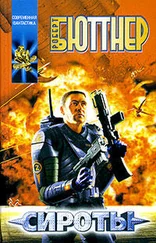

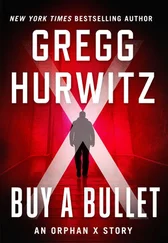
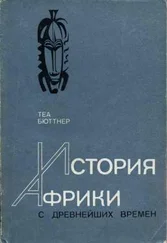

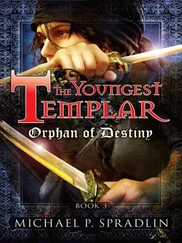
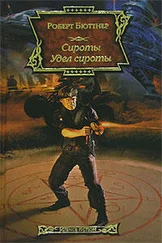
![Дэн Бюттнер - Где живет счастье [Правила жизни самых счастливых людей планеты] [litres]](/books/395574/den-byuttner-gde-zhivet-schaste-pravila-zhizni-samyh-thumb.webp)


